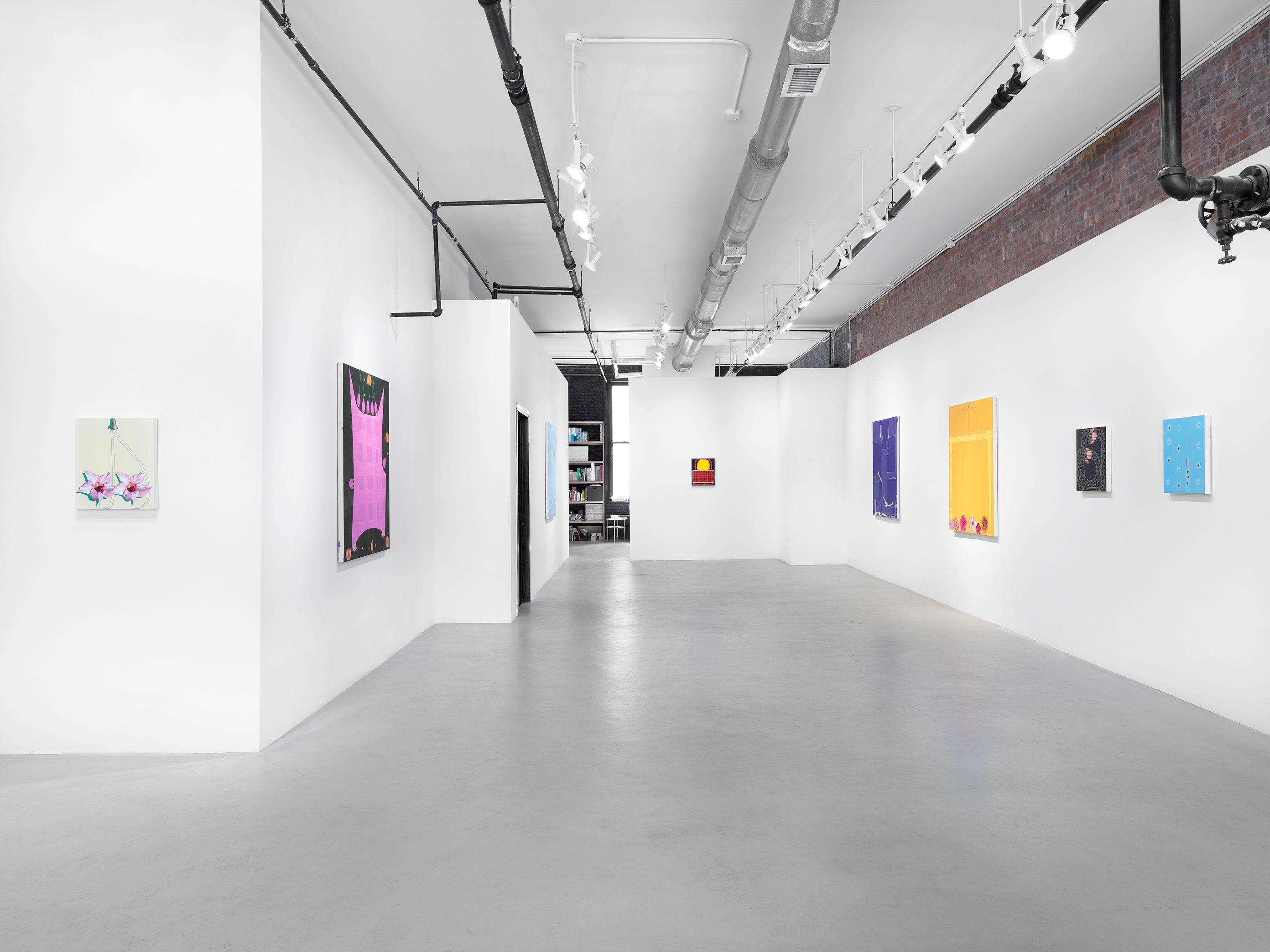Veronika Pausova’s recent paintings bring together constellations of everyday elements, body parts, and other objects. Pausova positions hyperrealistic flowers, buzzing flies, utensils, oranges, shower heads, and individually rendered water drops within fields of abstraction. Each object is rendered with a precise attention to detail contrasting with the artist’s experimental treatment of surfaces, processes that are sometimes referential but often enigmatic. The resulting space is a matrix rather than a void: an “environment in which something develops.” (1)
As with other works by the artist, forms recur across Pausova’s paintings but operate as signs or words, their meaning altered with each new context and position. At times they seem diagrammatic, yet they are not prescriptive, instead they reference processes of thinking and decision making. Comprised of objects which may have begun with a photographic reference, their point of origin has now long been effaced, the objects recombined into configurations that are surreal yet strangely intimate. A recent New York Times article notes that a quarter of the video views on the Facebook pages of major media companies last year featured anonymous hands with no visible face. Writer Amanda Hess asks “why are we so drawn to this feeling of vicarious competence?” (2) The independent body parts in Pausova’s paintings—eyes, hands, noses and knees—aren’t instructional, they seem at once linked to us yet disembodied and unencumbered by the physical rules of the world.
As in her previous paintings, Pausova articulates a psychological space where iconographic fragments of observable phenomena intermingle, like the internal action of a brain’s synapses connecting the dots. Pausova’s paintings don’t offer us this sense of “vicarious competence”; the way the dots are linked isn’t always logical or even possible, yet the paintings reflect back to us polyvocal points of view and the experience of dropping into another vantage point, another body. This is an act that is often uncomfortable, a thought experiment that is as awkward as it is essential.
– Written by Clara Halpern.
(1) “Definition of ‘Matrix’ in English by Oxford Dictionaries.” Oxford Dictionaries | English (2) Hess, Amanda. “The Hidden Language of Hands Videos.” The New York Times, 30 July 2018.














































































































